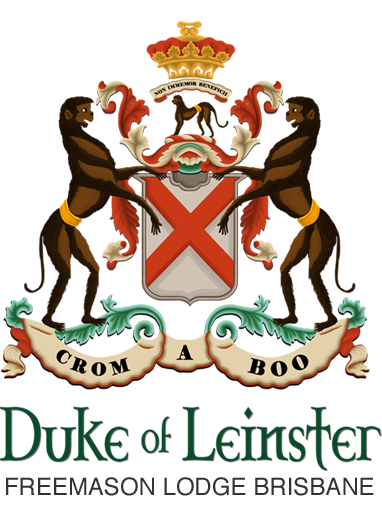
The historically “secret society” of the Freemasons has been mired in conspiracy theories and controversy for years, but young Australians are looking past that and choosing to become part of the fraternity.
In the past, the Freemasons’ initiation process was highly secretive.
Members had to be approached to join, had to meet certain criteria, and a guard stood outside lodge meetings to ensure only male members could attend.
Freemason Alec Ayling, in South Australia’s Riverland, said it had been daunting attending his first meeting.
“If you were to join, you were blindfolded before you came in and you’re conducted around certain areas and had things explained, and then you’re sort of brought to light,” he said.
Since declining membership has led to fraternities closing, rules around membership have evolved from being secret and at times discriminatory to being advertised as welcoming people from all walks of life.
Grand lodges in Victoria and New South Wales have pointed to social media campaigns as the success behind recruiting new members.
Several have reported a 10–15 per cent increase in young people aged between 18-30 joining their group.
In the Grand Lodge of South Australia and the Northern Territory, 75 per cent of its 115 new members over the past year were in the 20–30-year-old age bracket.
Finding meaning in a changing world
Port Adelaide Freemason Cooper Andrew Allan, 22, said young people were finding a sense of purpose with the group.
“Things are changing, the world is changing, and I’m looking for some stability and I’m looking for something I can latch onto and find some meaning,” he said.
“Inside that lodge room there’s no phone, there’s no iPad. It’s very much like an enlightenment society. It’s a time for peace, tranquillity and learning.”
Becoming a better man
 Freemasonry began in the Middle Ages when masons, or stone builders, were constructing the cathedrals and castles of Europe.
Freemasonry began in the Middle Ages when masons, or stone builders, were constructing the cathedrals and castles of Europe.
The men passed on their skills to worthy apprentices through secret rituals, and referred to biblical teachings that described the construction of King Solomon’s temple.
South Australia’s Grand Masonic Lodge director Jack Wolstencroft said any person with a belief in a supreme being who was a good person could join.
He explained the rituals, which were still mostly secret, were about character building.
“Freemasonry teaches lessons of social and moral virtues and is based on the symbols of the trade. Where the building industry is about building a physical structure, freemasonry is building the character of men,” he said.
“There was this vibe, a warm feeling in the [lodge] room, a feeling I hadn’t felt in long time. There was just a bunch of good men in the room,” h
e said.
“With a tried and tested system, [it was about] making a good man better.”
Mr Mann admitted his initial contact with Freemasonry had involved looking at conspiracy videos on the internet.
A dark but influential past
Bob James, the author of a book on Australia’s Freemason history, said the group did have a dark past and lodge rooms had historically excluded races, religions and sexes.
“There was a lot of disputation about the Jews in particular, but as far as coloured people, such as Indigenous Australians, they weren’t even considered to be possible recruits,” Dr James said.
Women have been practising Freemasonry in their own orders for about a century, but Dr James said some of these groups were given legitimacy only if members had family connections to male lodges.
“Because a lot of the spark has gone out of Freemasons generally, it’s probably something you wouldn’t get an argument about,” he said.
“But I’m sure if you scratched a few male Freemasons, you’d get a lot who would say that it’s totally and must always remain male.”
American Freemason expert at the University of California, David Hackett, said in the United States, particularly in southern states, people supporting the Klu Klux Klan were at times Freemasons.
But he said the attitude of lodges depended on members, not the belief system, and excluded groups such as African-Americans often created their own lodges with different rules.
“It depends on the time and the place and the people that are there,” Mr Hackett said.
“Native Americans are members of Masonic lodges. In fact Masonic lodges have been very important within Native American reservations.”
Dr James said the group had wielded considerable political influence, and during the early days of settlement some state leaders had been connected to lodges in England that wanted to establish an English Masonic Empire.
“In early days in Tasmania, the people who were high up in the Freemasons at the time were also the people who were making decisions about state-level politics, the governor of the state and that sort of thing,” he said.
Mr Allan said for young people, the idea of “a society of secrets” was appealing, but they were mostly joining to find meaning in an ever-changing globalised world.
“Obviously I can’t tell you what the secrets are … but I can tell you with great confidence, it’s nothing world-shaking, it’s not nuclear codes or water passages or where’s the magic bullet that shot JFK.”
source: https://www.abc.net.au/news/2018-11-21/young-people-joining-freemasons-connect-changing-world/10508708




